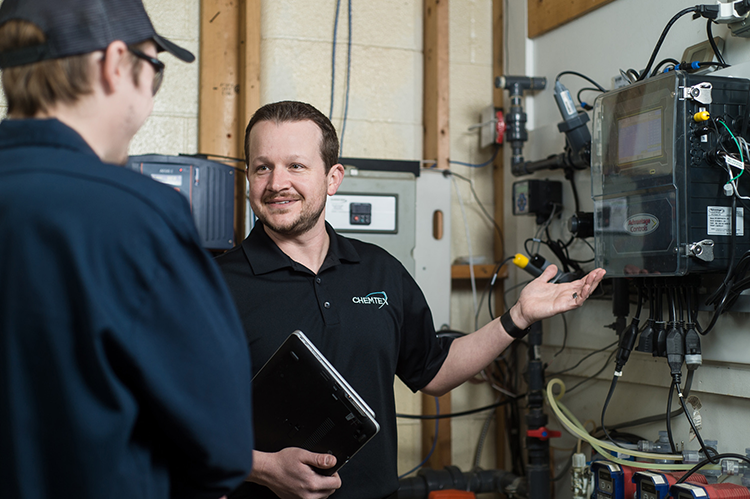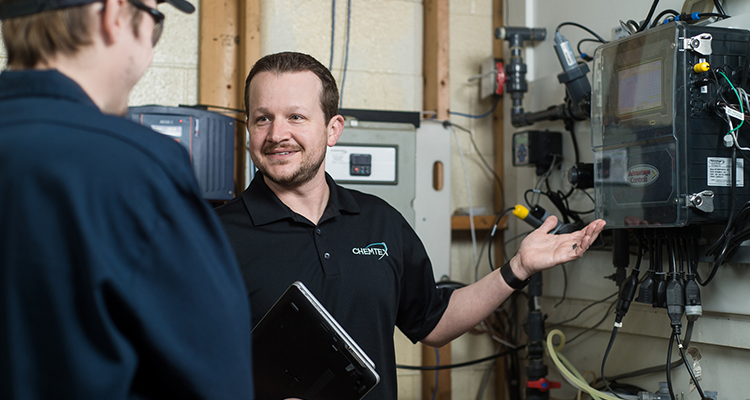
Routine Operator Testing
Routine operator testing needs to be part of every water treatment program.
It is true that water treatment programs are increasingly automated. It’s also true that this type of automation is largely reliable and incredibly convenient. Despite this, we can’t emphasize this enough: Testing still matters.
Regular operator testing is a critical back-up element to make sure your water treatment program is working as intended by confirming prescribed program recommendations are in the correct range. Testing is absolutely necessary so when some aspect of the automation process fails, you know as quickly as possible and protect the integrity of the equipment.
Catch Failures Early
“Set it and forget it” is a risky strategy, because when your system falls out of balance, it’s easier to identify and fix before serious issues arise. Testing reveals these problems in the earliest possible stages, before damage is done. The source of the problem can be identified and repaired while it’s still in the early stage. Early identification oftentimes makes for a relatively easy correction.
Automation is awesome, but in a water treatment application there are a lot of moving parts, and the stakes are high. If just one component fails, the program can fall apart. We’ve all seen it: A softener, a pump, a sensor fails, and then the whole program unravels.
Some water treatment vendors may claim “no testing is required.” Well, we’ve witnessed how neglecting to test can result in inadequate water treatment and subsequent problems. The final result can be tube failure, boiler scale up, and even Legionella outbreaks.

You may not need to run every test, every day, but you need to set up a testing protocol and stick to it. It takes just a few minutes to perform a few basic tests; those tests which are critical to your specific application.
Interpreting Test Results
In addition to testing, operators must understand the implications when the tests results are outside of recommended ranges. Operators should rely on program control manuals for guidance. These manuals describe what to do when test results don’t comply. Testing will reveal problems, but only to operators who understand how to read the results and place them into context.
For the best and most economical maintenance of your water treatment program, you need to:
- Understand the needs of your system
- Install a functional and reliable automation system to address your specific needs
- Verify through testing that the automation/application is working; AND
- Have management’s support to reinforce the idea, “some tests must be run” to confirm that program is running as designed
- Make certain sure operators are trained and know how to properly react with non-compliant test results.
If you need help with any aspect of your treatment program, your Chemtex water treatment professional is available to work through all aspects of your operation. We can help you come up with the right solutions to keep your water treatment program efficient and effective. If you need help setting up your testing protocol, training your operators or interpreting test results, please reach out to us. We always welcome your calls and inquiries.



/NQA-ISO-9001-Logo-ANAB.jpg)